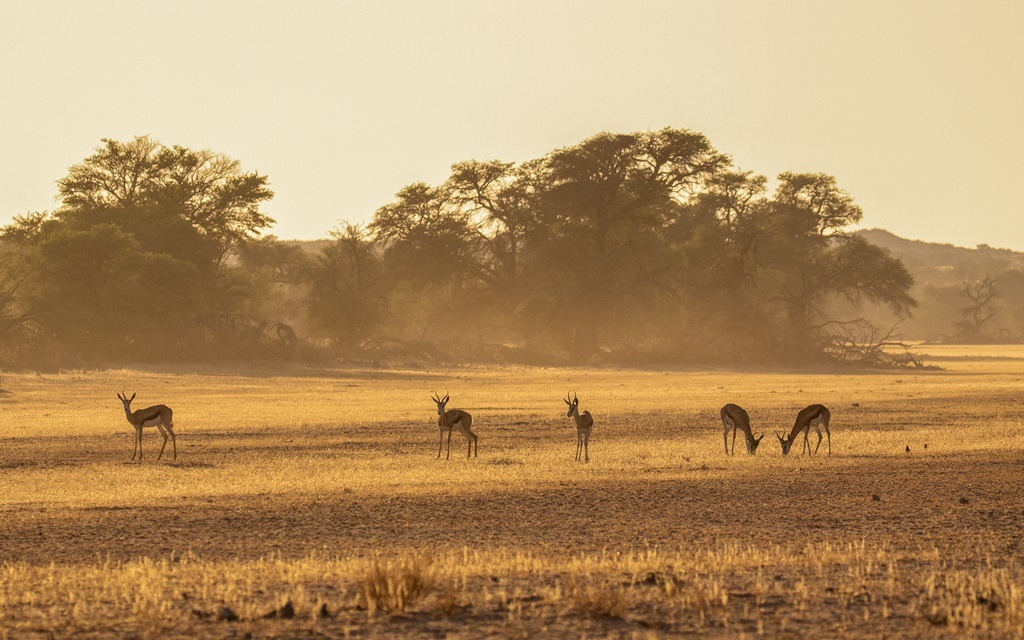
Businesses have an important role to play in limiting biodiversity loss through innovation, investments and sustainable practices, writes Kate Handley.
- For climate change news and analysis, go to News24 Climate Future.
Declining biodiversity threatens health, food security and quality of life.
Businesses are also more dependent on biodiversity than previously thought, with approximately $44 trillion of economic value generation – or half the world's GDP – moderately or highly dependent on nature.
The depletion of biodiversity puts this figure at risk. As businesses grapple with the physical risks associated with the decline of ecosystem services, such as reduced protection from natural disasters or decreased production yields because pollinators, like bees and other insects, are declining. In some cases, loss of biodiversity also increases exposure to climate-related risks.
Businesses also face other risks as a direct or indirect result of ecosystem collapse.
This includes transition risks, which arise as a result of technological advances and regulatory changes aimed at curbing negative impacts on biodiversity. Transition risks can include subsidy reforms, taxes and fines, or risks to business models where new technologies replace those that pose a greater risk to biodiversity - for example, the rise of meat alternatives.
Companies that mismanage physical and transition risks may also expose themselves to legal risks, such as litigation, regulatory penalties, insurance costs or reputational damage, as consumers increasingly seek products and services that don't impact negatively on nature.
WATCH | The economic cost of biodiversity loss
At the end of 2022, parties to the Convention on Biological Diversity came together to agree to a new deal for a nature-positive world – which, simply speaking, means more nature by the end of this decade than at the beginning.
The outcome, the Post-2020 Global Biodiversity Framework (GBF), contains four goals and 23 targets that will guide national governments in setting their nature-related policies, having significant implications for the risks businesses need to manage and report on.
The goal? Living in harmony with nature by 2050, which means that biodiversity is valued, conserved, restored and wisely used, maintaining ecosystem services, sustaining a healthy planet and delivering benefits essential for all people.
The private sector has a critical role to play in achieving the goals and targets of the GBF.
Several of the targets directly affect business. Target 15 is arguably the most directly relevant. This target requires businesses to address unsustainable production and supply chains - which are among the biggest drivers of biodiversity loss. Businesses are required to regularly monitor, assess, and transparently disclose their risks, dependencies and impacts on biodiversity.
This disclosure will enable businesses to reduce their negative impacts on biodiversity, increase positive impacts, and reduce biodiversity-related risks.
READ | COP15 adopts biodiversity plan to protect 30% of land and water by 2030
Importantly, businesses will have to account for impacts and risks across their value chains. This means that companies will no longer be able to divorce products and services from direct impacts on biodiversity and ecosystem services.
New initiatives, such as the Taskforce for Nature-related Financial Disclosures are developing the frameworks within which disclosure and reporting may be done, guiding business owners on their disclosure journeys.
But how can businesses benefit from these increased disclosure requirements?
As the focus on biodiversity loss increases, so too will regulatory and stakeholder demands on companies to make such disclosures. Protecting biodiversity, and reporting thereon, will not only be good for the planet but will reduce the physical, transition and legal risks businesses face, ultimately having a positive impact on the bottom line.
We saw how the Paris Agreement spurred a wave of climate action in the years that followed. So too will the targets and goals of the GBF accelerate changes in policies, regulations, stakeholder expectations and market environments. This will level the playing field for businesses that have already adopted sustainable practices while increasing transition risks for those businesses that fail to adopt a nature-positive approach.
These are all risks which businesses will be required to disclose and manage, but they also present significant opportunities for those savvy enough to recognise the inherent benefits of protecting and restoring biodiversity.
Companies that succeed in assessing and managing their nature-related risks and opportunities will not only increase resilience in their value chains but will be ahead of the curve in meeting growing stakeholder expectations in relation to protecting biodiversity. They would also be better placed to meet potential future regulatory requirements aligned with Target 15 as governments transpose the GBF into domestic law and policy.
Ultimately, all businesses will be affected to varying degrees by biodiversity loss and loss of ecosystem services.
With more than half the world's GDP dependent on nature, the risks are just too high to ignore. But business will also play a pivotal role in halting and reversing biodiversity loss through innovation, investment and sustainable practices.
Companies stand to benefit significantly by getting this right.
Kate Handley is an environmental attorney and executive director of the Biodiversity Law Centre, a non-profit law clinic which seeks to use the law to reverse the catastrophic decline of biological diversity in southern Africa.
News24 encourages freedom of speech and the expression of diverse views. The views of columnists published on News24 are therefore their own and do not necessarily represent the views of News24.




 Publications
Publications
 Partners
Partners












